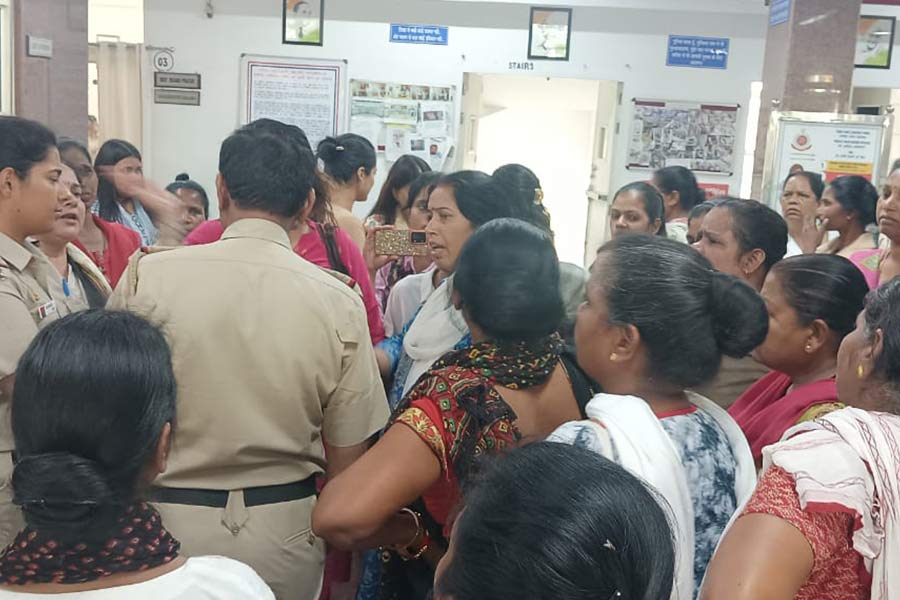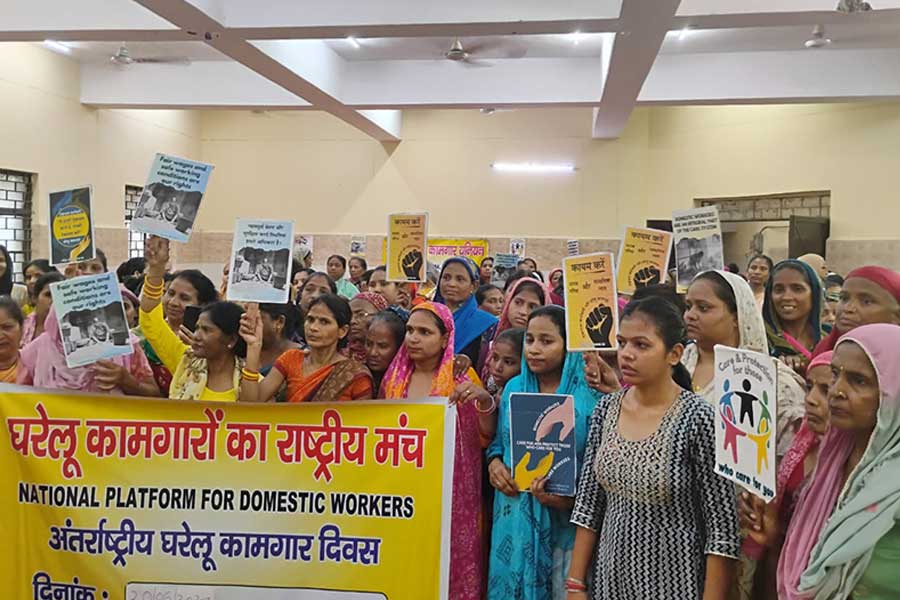A Swiss court on Friday sentenced four members of Britain’s wealthiest family – the Hindujas – of exploiting domestic workers at a luxury villa in Geneva, while acquitting them from the grievous charge of human trafficking.
The verdict, which the Hindujas have declared they will challenge in a higher court of law, came barely 11 days since the trial began.
On the same day but a few hours earlier, some 7,845 km away in Kerala’s Thiruvananthapuram, the state general education and labour minister, V Sivankutty, announced the Kerala government’s decision to bring in a new law to ensure the welfare of house-helps in the state, the first instance of a state government taking any initiative to protect a silent work force believed to be around 40 lakh with two-thirds of them women.
The International Labour Organization believes the figure could be much higher.
As of yet, India does not have any laws to protect the rights of domestic workers, many of whom have complained of physical and sexual abuse at the hand of their employees.
The Indian government has not ratified the ILO Domestic Workers Convention No 189 (which recognizes domestic workers as workers and advocates their rights) nor the ILO Forced Labour Protocol which makes it mandatory for member states to take adequate measures to safeguard the interests of the workers, prevent forced labour, protect victims (of abuse of any form) and deliver justice.
A draft national policy on domestic workers, which proposes to recognise domestic workers as unorganized sector workers, grant rights to unionise, guarantee minimum wages and access to social security, among others, is pending since February 2019.
The Hindujas with a net worth at 37 billion pounds owning a multinational conglomerate with massive holdings in automotive manufacturing, banking, oil and gas, real estate and health care were accused of confiscating the employees’ passport and forcing them to work 16 hours a day or longer without paying overtime in the Geneva villa.The trial began on June 10.
Christine Mary, the national coordinator of the Mumbai-based National Domestic Workers’ Movement, said in India such a case the would have dragged on for years.
“In any case where a high-profile personality is involved, such cases tend to drag in India,” Mary said. “For us to even get an FIR filed with the police for a case of physical or sexual abuse of a domestic worker is a struggle. They are reluctant to take the complaints.”
Mary’s colleague in Delhi, Chinmayi Samal, a consultant with the NDWM, had to approach the Delhi High Court to get an FIR registered for the mysterious death of a young woman who came to work from Odisha’s Mayurbhanj. “This was her third year of employment. She came to Delhi with her sister’s husband. On April 2 she joined a family in Greater Kailash and nine days later she was found hanging. The police refused to lodge an FIR. We moved the Delhi High Court. The next hearing is in August,” said Samal.

After the mysterious death of a domestic worker from Odisha in Delhi this April justice is still awaited. Sourced by the correspondent
The five states which provide the bulk of domestic workers—most of them women and young girls --- are West Bengal, Assam, Odisha, Jharkhand and Chhattisgarh. Instances of domestic workers' abuse, non-payment of wages and ill-treatment are rampant with little recourse.
“We have recently taken up a case of a young girl from Jharkhand who was employed with a family in Mumbai but has not been paid any salary for 11 months,” said Mary.
Samal said most of the domestic workers find employment in households in Delhi and its adjoining areas like Gurugram and Noida through placement agencies which in most cases operate outside the ambit of legal framework.
“The girls are brought to the city through a close relative and by the time she reaches the agency, has already changed hands two or three times. She is completely in the dark about the nature of work that she has to do, who the employees are, how much she will be paid. In many of the cases, the employers pay the agency instead of the worker,” said Samal. “The girl’s family has little to no information about where she has landed. Only the placement agency knows where she is working.”
Working hours for in-house domestic workers in India could extend to 16-18 hours with almost negligible amenities and no holidays.
“An in-house domestic worker is expected to clean the toilet but she has no right to use the same. In Mumbai I saw in some apartments, the maids were permitted to use the toilet meant for security guards,” said Pritha Tah, Citu state committee member who is working with domestic workers in Bengal. “The biggest drawback is that they are not recognized as workers. In villages, domestic workers are little as Rs 600 per month. This situation has to change.”
The Pashchimbanga Grihasahayika Union was formed in 2017 but is yet to be officially recognized by the Bengal government.
“The ruling party is scared of losing votes of the middle class if they support the union. Even within the Left parties there was reservation on the question of domestic workers forming a union to press for the demands like a minimum wage of Rs 75 per hour,” said a union member.
In this backdrop, the Kerala government has come forward with what could be a groundbreaker.
“Protecting the employment of such workers is the most important duty of a government in a democratic society. Therefore, the government sees it as the need of the modern times to create necessary legislation to ensure the legal rights of domestic workers,” said Kerala minister Sivankutty. “The draft bill provides for protection of domestic workers from deprivation of their rights, harassment, assault and economic exploitation apart from ensuring the regularization of their wages.”
The draft bill for the welfare of domestic workers (which has been in the works since 2021) also covers domestic workers’ contracts with their employers and placement agencies, their rights, employer’s duties, responsibility for payment of wages, working hours, holiday benefits also crimes and penal provisions.


